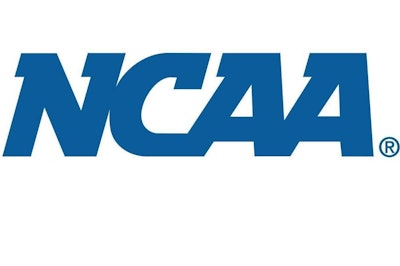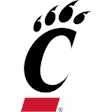
The NCAA-U.S. Department of Defense Concussion Assessment, Research and Education Consortium — the largest concussion and repetitive head impact study in history — has received a $25 million award from the Medical Technology Enterprise Consortium via the U.S. Army Medical Research and Development Command.
The funding is from the Defense Health Program under the oversight of the assistant secretary of defense for health affairs. Moreover, an additional $10 million from the NCAA and $7.65 million from the Defense Health Agency via a Cooperative Research and Development Agreement will provide funding to begin the next phase of the landmark research project.
CARE is the product of the historic NCAA-DOD Grand Alliance that was created in 2014.
This next phase of CARE, known as the CARE/Service Academy Longitudinal mTBI Outcomes Study (SALTOS) Integrated (CSI) Study, will investigate the nature and causes of long-term effects of head impact exposure (HIE) and concussion/mild traumatic brain injury in NCAA student-athletes and military service members.
The newly awarded funding from MTEC/DoD and the NCAA provides the CSI Study investigative team additional resources to build upon existing CARE/SALTOS research by following former CARE research participants beyond graduation to evaluate the long-term or late effects of HIE and/or concussion/mTBI for up to 10 years or more after initial exposure or injury.
The most comprehensive, prospective study of its kind to better understand concussion, HIE and effects on brain health, the CARE Consortium is funded by the NCAA and DOD with broad aims to enhance the health and safety of NCAA student-athletes and military service members. It also serves as a valuable resource for youth sports participants and society at large. It is the first major concussion study to assess both women and men in 24 sports; before CARE, most concussion literature came from men's football and men's ice hockey.
The latest awards bring the total Grand Alliance funding now to over $105 million.
The initial phase of CARE focused on the six-month natural history and neurobiology of acute concussion and HIE. The second phase, CARE 2.0, prospectively investigated the intermediate effects — such as changes in brain health outcomes over a college career — and early persistent health effects associated with HIE and concussion soon after graduation.
With the MTEC/DOD award, combined with additional funding from the NCAA, the CSI Study is well-positioned to investigate the brain health of NCAA athletes and military service members who have had concussion or HIE, compared to those who have had neither. Additionally, the effects of other medical conditions on brain health will be assessed in military service members.
Anticipated outcomes from the CSI Study include determining the prevalence and characteristics of long-term brain health problems associated with HIE and concussion and mild traumatic brain injury. The study also seeks to validate advanced biomarkers (such as neuroimaging and blood) that detect early indicators of such long-term health issues.
"Identifying the neurobiological pathways that possibly contribute to long-term negative consequences of concussion and repetitive head impacts is critical for the development of early interventions and strategies in athletes and service academies who are at risk," said NCAA Chief Medical Officer Dr. Brian Hainline. "We are confident this award from MTEC, coupled with additional funding from the NCAA and DoD, will provide us the support to develop an array of interventions that might mitigate possible long-term effects of concussion or HIE."
"The process of conducting warfighter brain health research is maximized through partnerships like this with other governmental agencies, industry and academia through data sharing and analysis activities," said Terry Rauch, Ph.D., director of medical research and development at the Office of the Assistant Secretary of Defense for Health Affairs. "We must continue to refine our approaches toward protection and mitigation of TBIs including concussion. As the Department better understands brain exposures and injuries, we will begin to reduce potentially negative long-term and late effects."
An integrated public/private effort, CSI is designed to identify the unique individual characteristics (such as phenotypes/genotypes) of individuals at a higher versus lower risk of negative outcomes associated with concussion and HIE. Findings will be published, making them available to the broader scientific community to promote further development of specific strategies for injury prevention, early recognition, and mitigating treatments of those at greatest risk of brain health effects.
Launched in 2014 as part of the NCAA-DOD Grand Alliance, the CARE Consortium is overseen by principal investigators at research institutions across the country. Leveraging its extensive infrastructure and experienced research team, CARE has published over 80 scientific papers that provide critical contributions toward advancing the science of mTBI/concussion and HIE.
The Indiana University School of Medicine serves as the administrative and operations core and is the central coordination center for the CARE Consortium. Led by Dr. Thomas W. McAllister, professor of psychiatry, the Indiana team provides regulatory and fiduciary oversight, as well as biostatistics and data management, neuroimaging, bioinformatics, biomarkers/biospecimen management, and other support resources for the consortium.
The University of Michigan leads the longitudinal clinical study core, a prospective, multi-institution clinical research protocol studying the natural history of concussion among NCAA student-athletes and military service academy cadets. Steven Broglio, Ph.D., professor of kinesiology and director of the U-M Concussion Center, leads this effort.
Michael McCrea, Ph.D., professor of neurosurgery and co-director of the Center for Neurotrauma Research at the Medical College of Wisconsin, directs the advanced research core, which includes head impact sensor technologies, advanced neuroimaging and biological markers that include detailed genetic testing.
The Uniformed Services University of the Health Sciences coordinates engagement with the four military academies in the consortium. Retired Army Col. Paul F. Pasquina, M.D., professor and chair of the department of rehabilitation medicine and director of the Center for Rehabilitation Sciences Research, leads this aspect of the study.




































